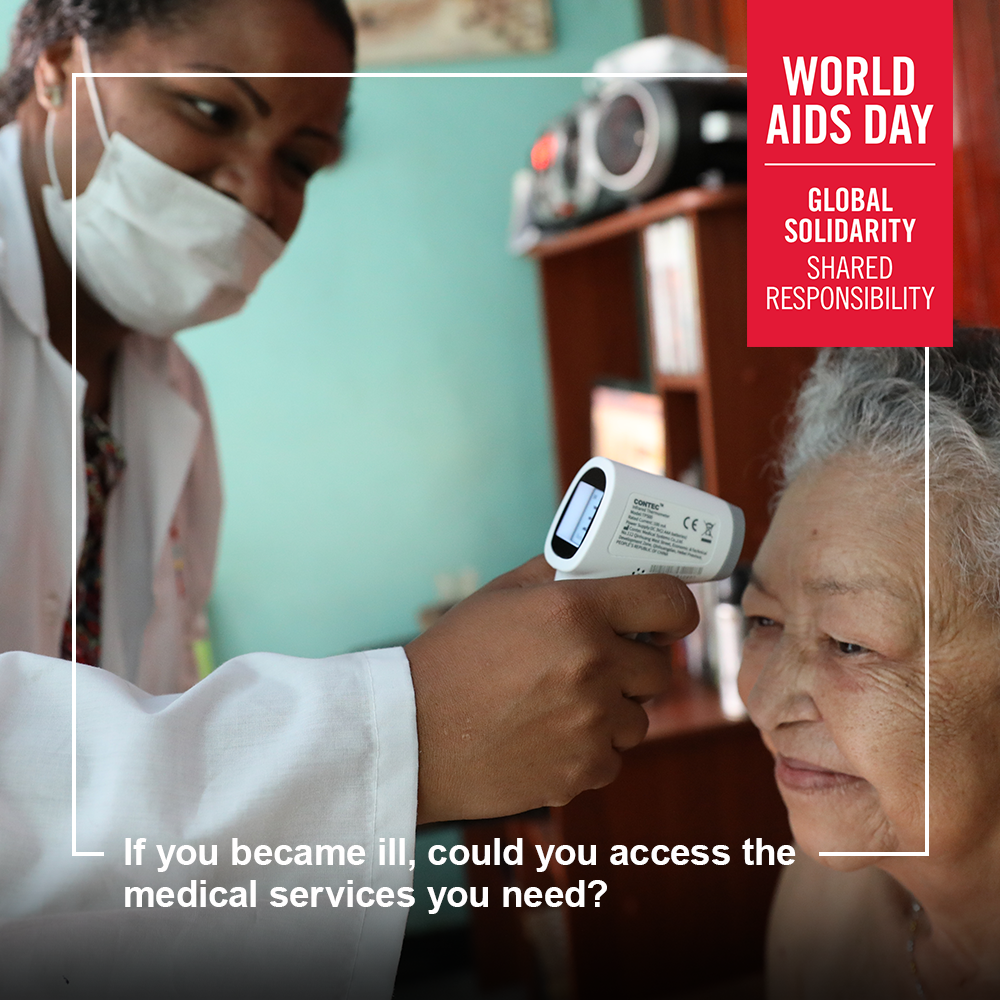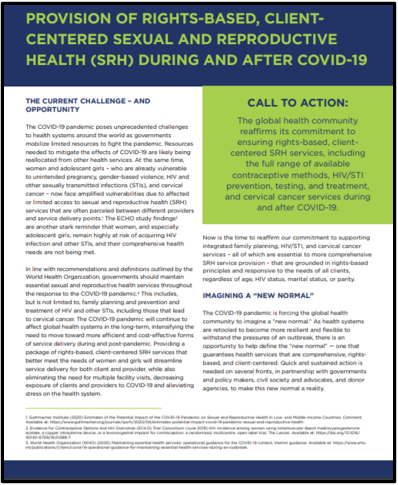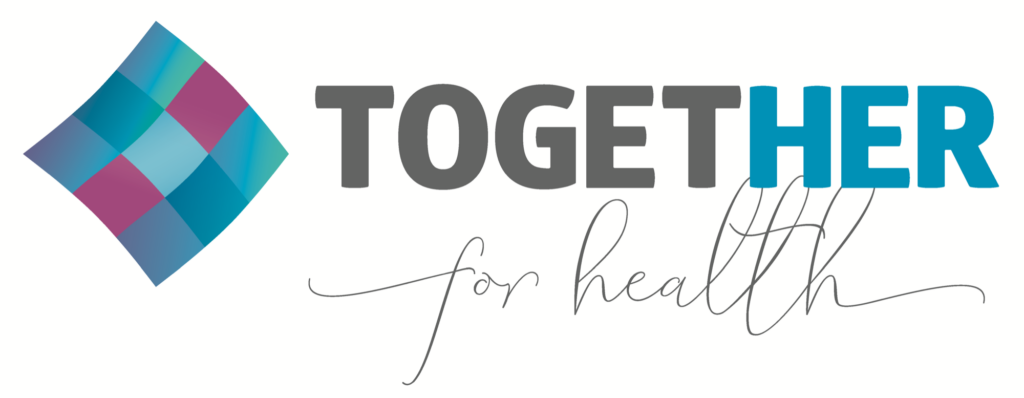Reflecting on World AIDS Day: The Importance of Cervical Cancer Prevention
Photo credit: UNAIDS
Every year World AIDS Day offers a unique opportunity to reflect on progress in the battle against HIV and AIDS, as well as comorbidities – including cervical cancer. The emergence of COVID-19 has made 2020 a most exceptional year in almost all aspects of global health, including efforts to achieve UNAIDS’ 90-90-90 HIV treatment targets. Even more striking are recent data indicating that lockdowns associated with COVID-19 – necessary to slowing its spread – are also unfortunately associated with higher risk to the health and safety of girls and women, increasing domestic abuse, sexual assault and unwanted pregnancy.
The connection between cervical cancer and HIV/AIDS – both preventable diseases – has been well-documented. New global estimates show that women living with HIV are six times more likely to be diagnosed with cervical cancer. In eight countries, at least 40% of cervical cancer diagnoses are attributable to high HIV prevalence.

On this World AIDS Day, TogetHER celebrates the significant progress in the global fight against HIV and AIDS to date, acknowledges the opportunity to integrate preventive services for women, and calls for continued collaboration between the critical related efforts to end the HIV/AIDS epidemic and eliminate cervical cancer deaths.
Graphic: UNAIDS

While TogetHER and other cervical cancer champions celebrate the recent launch of a global strategy to accelerate the elimination of cervical cancer by the World Health Organization (WHO), we must also acknowledge the need for cervical cancer elimination efforts to align with support for the 20.1 million women and girls living with HIV and the millions more at risk of the disease.
Thankfully, the solutions to these intertwined global health crises also share critical linkages. The Go Further Partnership – coordinated by the U.S. President’s Emergency Plan for AIDS Relief (PEPFAR) — has screened over 1 million women living with HIV for cervical lesions since 2018. PEPFAR is the largest single funder of cervical cancer screening and treatment in low-income and lower middle-income countries. The Global Fund Against AIDS, TB, and Malaria offers support for programs seeking integration of cervical cancer screening into HIV/AIDS service delivery.

“The global health community reaffirms its commitment to ensuring rights-based, client-centered SRH services, including the full range of available contraceptive methods, HIV/STI prevention, testing, and treatment, and cervical cancer services during and after COVID-19.“

Additional integration of family planning and sexual and reproductive health services – including cervical cancer screening and preventive treatment – into HIV/AIDS and other reproductive health programming can reach more women and increase uptake of both services. TogetHER has added our voice to a Call to Action, articulating the need for increased coordination between these lifesaving interventions, during and after COVID-19.
COVID-19 has complicated health delivery efforts around the world this year, and global health programs will likely continue to feel its effects for years to come. Let us take inspiration from the resilience and tenacity that have been hallmarks of the global HIV/AIDS movement from its earliest and most uncertain days. That spirit is reflected in the innovation we’re seeing in communities around the world as programs seek to sustain efforts to reach women with essential reproductive health services during the COVID-19 pandemic.
On this World AIDS Day, TogetHER celebrates the significant progress in the global fight against HIV and AIDS to date, acknowledges the opportunity to integrate preventive services for women, and calls for continued collaboration between the critical related efforts to end the HIV/AIDS epidemic and eliminate cervical cancer deaths. With the challenges presented by COVID-19, the need for effective service delivery strategies that can reach women and girls in need are more important than ever.
TogetHER Resources for World AIDS Day:
- TogetHER Cervical Cancer Briefs for Global Fund programs, February 2020
